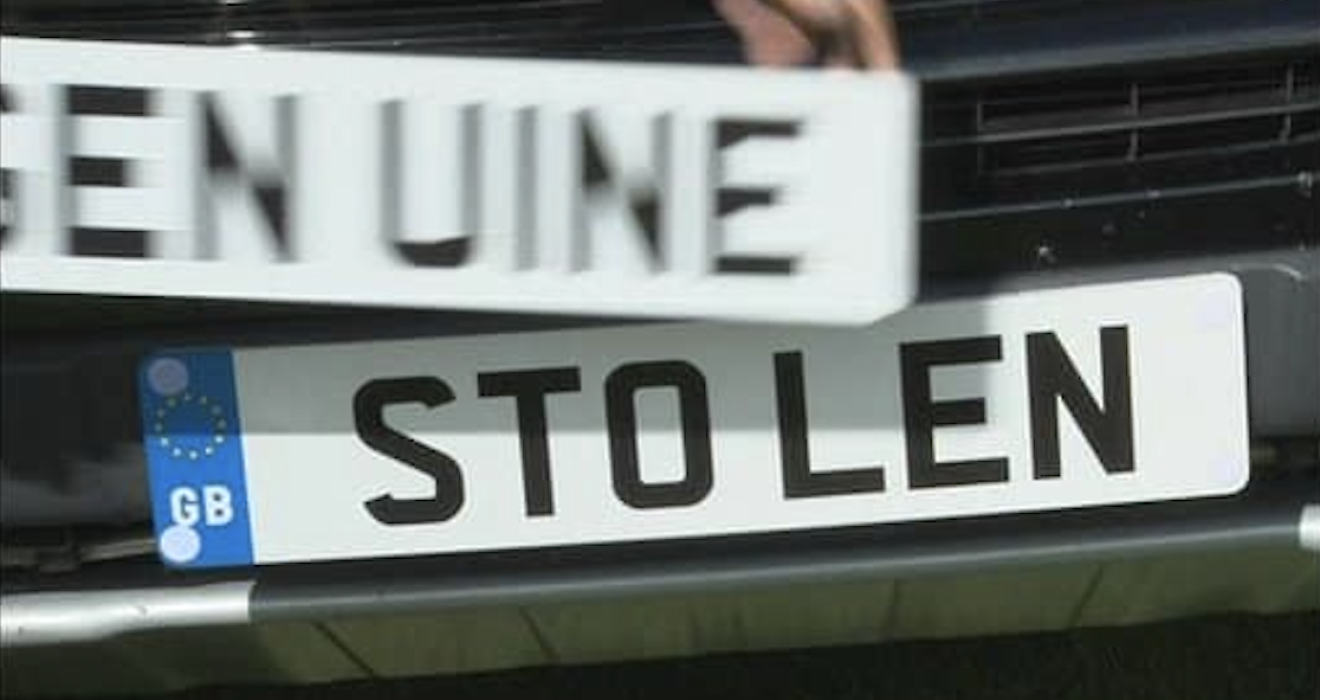What is car cloning?
Car cloning is also called vehicle identity theft. In the United States, it’s also known as VIN cloning. This is where someone copies the registration plate on your car and uses it on another car and pretends to be you. The cars don’t necessarily need to be the same make and model however its more difficult to detect if they are the same models.
This obviously means that there are 2 cars are using the same vehicle registration number. The cars may be in completely different parts of the country so the first time you would be alerted to this issue is when the law has been broken.
Why would someone want to clone my car?
There are various reasons that someone would want to clone your car. The 3 main reasons are as follows.
Avoiding speeding tickets. Avoiding Illegal parking City centre congestion charges. Cloning the vehicle will also allow the driver of the cloned vehicle to drive without road tax, MoT or motor insurance as the plate that’s being displayed would show up on DVLA computers as being totally roadworthy with all checks in order.
What are the implications of car cloning?
Car cloning is a serious criminal activity. Nowadays, cameras are used almost all over the country on our roads and car parks. This means that your car is tracked almost continuously as it passes ANPR cameras. ANPR stands for Automatic Number Plate Recognition. These cameras are linked to a central database that hold information on the vehicle relating to the car tax, Mot and insurance. If any of these requirements are not met, such as a lapsed road tax, then the ANPR system automatically writes to the registered keeper of the car to tell them that they have broken the law and a fine is issued.
Vehicle criminals are exploiting this law by having illegal numberplates made and using them on vehicles which they know are currently road-legal so that they can avoid paying for road tax, MoT’s and more importantly, car insurance.
This means that if they drive carefully, then it may be months or even years before the real owner of the vehicle bearing the original plate is alerted to the crime. Once the law has been broken, it can be a difficult situation trying to explain to the authorities that you did not commit the offense. This becomes much more difficult if the perpetrator has used the cloned vehicle in your area and it is of similar make and model to your car. It will be your responsibility to prove that you were not in that place at that time. This is why the crimes are more often than not committed many miles away from where the genuine vehicle resides.
How can I tell that my vehicle has been cloned?
The simple answer is, you cant. The first sign of your vehicle being cloned, is a letter through the post or a knock at the door.
How do criminals acquire the Perspex plates?
Criminals usually acquire the Perspex or plastic plates in 2 ways. Firstly, and perhaps the most obvious way, is that they just pinch them from a similar car. This is a risky way for the criminal as it’s a blatant signal to the vehicle owner that they are likely to have been the subject of a cloning. The second way is to use a dodgy number plate maker who asks for no proof of ownership to make the plates. Plates like these are being made all the time with manufactures in Jersey and the Isle of Man who are outside of the UK law so cannot be prosecuted. Its not unusual for criminals to use fake V5 log books to obtain the numbers too.
What can I do if my car is cloned?
If you receive a fine through the post and you are sure you did not commit the offence, then there are few things you need to do. Firstly, do not ignore it. Some people think that because they did not commit the offence that they can ignore the letter and it will go away. It won’t. The fine may even increase or you may find more fines arrive soon afterwards. Next, you should reply to the company that has issued the fine with an explanation why you were not the driver. You should also take pictures of your car in case the car used in the offense was a different make or model. Its also useful to take pictures of your actual plates as these may show distinctive badges or markings to prove that you were not the driver too.
How can I stop my vehicle being cloned?
There are 2 reasonably simple methods to stop your car being cloned. The first option is to retain your current car registration. This means DVLA will issue a replacement registration number to the car and issue a retention certificate for your previous registration number. This means that if the previous registration is continued to be in use by the criminal, it will be picked up an as a number plate thats on retention and one thats not currently being used on the road at that time. Therefore any roadside ANPR or police cars using the ANPR will instantly stop the driver and prosecute.
The second method. Is to buy a personalised number plate. Criminals are highly unlikely to clone a car with a personalised number plate as its far too recognised and so you are much much less likely to be a victim. The Private Plate Company can help in arranging a retention of your current number plate for just £25 plus VAT or we can arrange a new personalised number plate from as little as £49 plus VAT and the DVLA fee.

